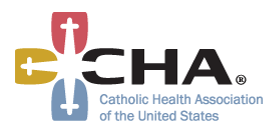
Age-Friendly Health Systems
Transforming Health Care for Older Adults
To ensure older adults receive safe, evidence-based care focused on what matters to them, the AHA is working with partners and care teams as part of the Age-Friendly Health Systems movement.
Today, more than 5,000 care sites, including hospitals and health systems, ambulatory care, long-term care and post-acute care, have been recognized as Age-Friendly Health Systems.
Why become an Age-Friendly Health System?
- Age-friendly health care is an urgent need. There are more than 61 million Americans age 65 or over, and that number is projected to climb to about 95 million by 2060.
- Many older adults have more than one chronic disease and take multiple medications. Many individuals in this population of people live with uncertainty as they transition from living independently to reliance on others.
- Delivering care based on the 4Ms Framework — what matters, medications, mentation and mobility — helps reduce readmissions, decrease length of stay and improve health outcomes for older adults
Age-Friendly Health Systems is an initiative of The John A. Hartford Foundation and the Institute for Healthcare Improvement (IHI) in partnership with the American Hospital Association and the Catholic Health Association of the United States (CHA).This work is part of the AHA’s commitment to advancing health of all individuals at every life stage in communities across the country.
Advancing Age-Friendly Care: 2025 Chicago Convening
Watch AFHS Action Community participants share success stories, lessons learned and more.
AFHS Pathways Selection Tool
Interested in finding your place in the Age-Friendly Health Systems movement? Complete the AFHS Pathways Selection Tool to learn more.
Age-Friendly Podcasts
Preparing for the Future with Age-Friendly Health Systems

Dave Eaker, geriatric program manager at Atrium Health, and Shannon Morton, assistance vice president of patient care services at Atrium Health Cabarrus, discuss why the organization joined the Age-Friendly Health Systems movement, the infrastructure that Atrium is developing and the positive difference it’s made for older adult patients.
Caring for Older Adults Who Are Military Veterans

More than 9 million military veterans receive their health care through the Veterans Health Administration, and nearly half of them are age 65 or older. Kimberly Wozneak, national lead for Age-Friendly Health Systems, U.S. Department of Veterans Affairs, describes how the VHA is weaving the 4Ms into the care services it provides to aging veterans.
Integrating Age-Friendly Care in an Emergency Department With Sharp Grossmont

Julie Dye, clinical nurse specialist in geriatrics at Sharp Grossmont Hospital, discusses the journey of becoming an age-friendly emergency department through the support of hospital leadership, achieving staff buy-in, asking “what matters” to patients and leveraging community partnerships. Read the case study that highlights this work.
Enhancing Care for Older Patients with Age-Friendly Health Systems

Sonja Rosen, M.D., chief of geriatrics at Cedars-Sinai, shares updates on the organization’s journey as an Age-Friendly Health System and describes a multidisciplinary approach to providing quality care for older patients amid workforce challenges. Rosen also discusses working with community partners to improve the health and well-being of older adult patients.
The “4Ms” Framework
- What Matters: Know and align care with each older adult’s specific health outcome goals and care preferences including, but not limited to, end-of-life care, and across settings of care.
- Medications: If medications are necessary, use age-friendly medications that do not interfere with What Matters, Mentation or Mobility.
- Mentation: Prevent, identify, treat and manage depression, dementia and delirium across settings of care.
- Mobility: Ensure that older adults move safely every day in order to maintain function and do What Matters.
An Age-Friendly Health System is one in which every older adult’s care:
- Is guided by an essential set of evidence-based practices (the 4Ms);
- Causes no harms; and
- Is consistent with What Matters to the older adult and their family.
Additional information and resources about the Age Friendly Health Systems Initiative and 4Ms Framework can be found at Institute for Healthcare Improvement.
The AHA Action Community
The AHA is currently recruiting for its seventh Age-Friendly Health Systems Action Community convening September 2025, with acute, post-acute and outpatient sites of care. Age-Friendly Health Systems action communities, led by AHA and IHI, test the 4Ms Framework in hospital and ambulatory settings, sharing learnings in a seven-month virtual community.
The benefits of the Action Community include:
- Redeploying and prioritizing existing hospital/health system resources.
- Supporting your health organization’s mission, vision and values.
- Putting your organization ahead of the curve in preparing for the impending market shift.
- Achieving “Age-Friendly Health Systems Participant” or "Committed to Care Excellence" recognition.

Email ahaactioncommunity@aha.org for additional information or to ask questions.
Recognition
Since the first AHA Age-Friendly cohort launched in 2019, AHA Age-Friendly Health Systems Action Community participants have implemented the 4Ms Framework across a variety of care settings.
- "Age-Friendly Health Systems Participants" are hospitals and health care practices that have developed an action plan to showcase their commitment to putting the 4Ms into practice.
- "Age-Friendly Health Systems – Committed to Care Excellence" have submitted counts of older adults reached with the 4Ms for at least three months.
Visit the Institute for Healthcare Improvement's website for a complete list of hospitals and practices recognized by the Age-Friendly movement.
Interactive map: See age-friendly-designated health care organizations across the U.S.
Learn about AHA Action Community
Learn more about the AHA Age-Friendly Health Systems initiative and hear from hospitals about their age-friendly journey.
Resources
Blog

The Positive Impact of Age-Friendly Care
2024 AHA Board Chair Joanne M. Conroy, M.D., discusses the urgent need for age-friendly care and the benefits of Age-Friendly Health Systems.
Case Study

Integrating Age-Friendly Care in a Hospital ED
A multidisciplinary team at Sharp Grossmont Hospital works to ensure adults age 65 and older get quality emergency care, with positive results for patients and caregivers.
Blog
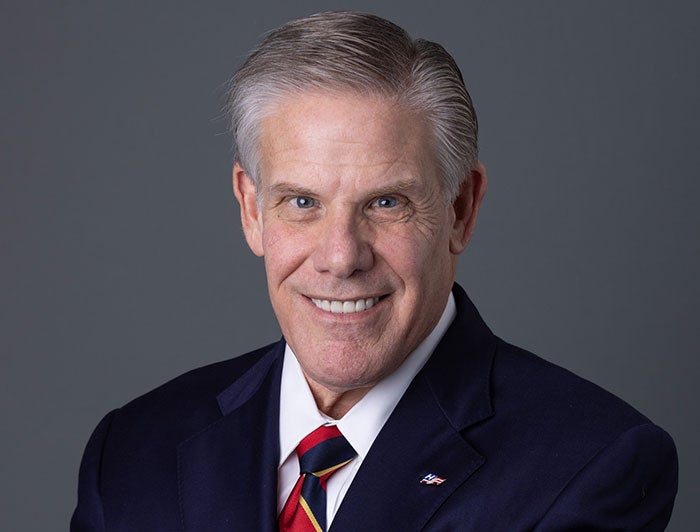
AHA President on Transforming Health Care for Older Adults
AHA President and CEO Rick Pollack highlights how the Age-Friendly Health Systems movement is advancing the health of older adults.
Case Study

Making Age-Friendly Care a Mission Goal
St. John’s Riverside Hospital created a data hub for all clinical teams, part of its efforts to integrate age-friendly care strategies across the organization.
Case Study
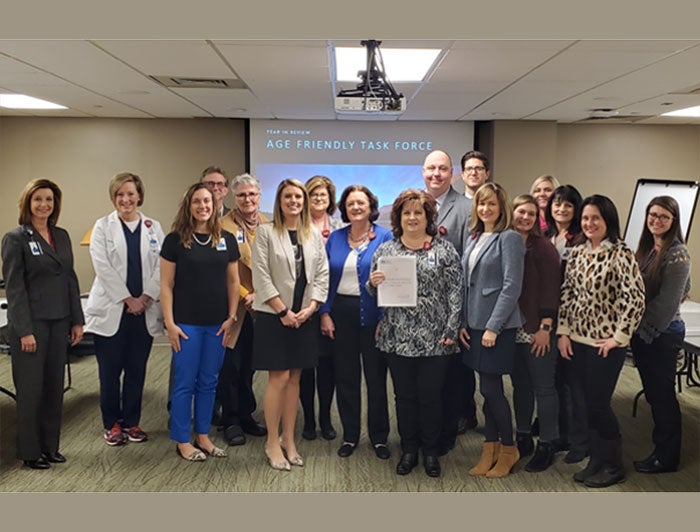
A Communitywide Approach for Age-Friendly Care
The age-friendly task force at AdventHealth Hendersonville created a vision board that helps drive improvements in caring for older adult patients.
Case Study
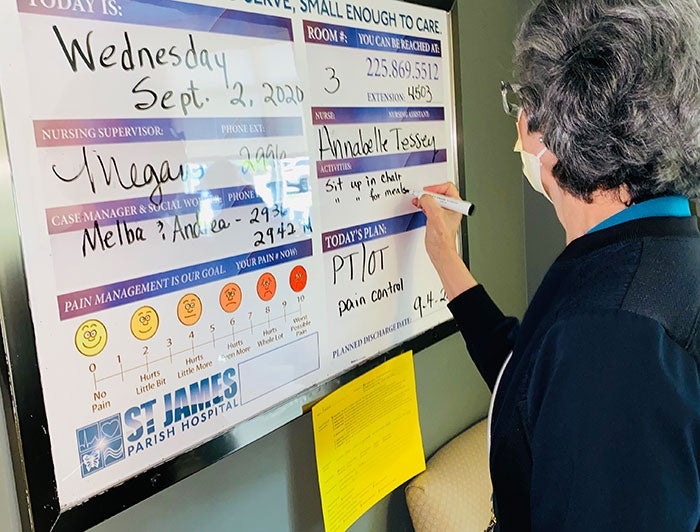
Age-Friendly Care At a Critical Access Hospital
Despite limited resources and staff, St. James Parish Hospital used the 4Ms framework and successfully implemented and spread age-friendly concepts.
Case Study

Embedding an Age-Friendly Framework Into Practice
Banner Health used the 4Ms framework in caring for high-risk, older adult patients, which improved patient and provider satisfaction scores.
Case Study
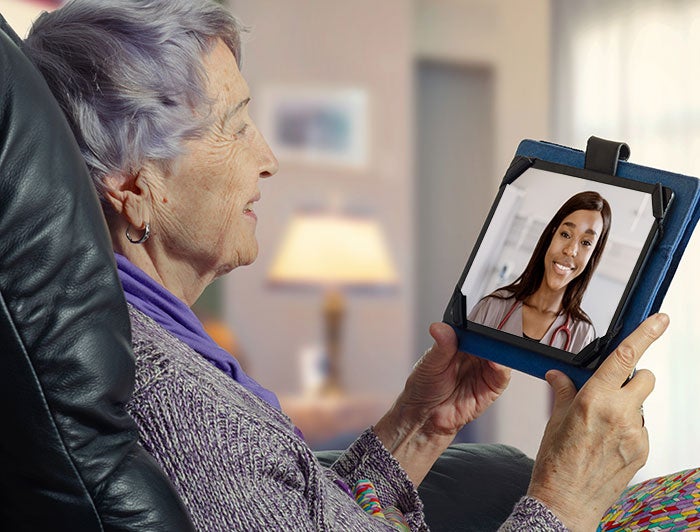
Age-Friendly Health Care Improves Value for Patients
This case study describes how a Cedars-Sinai Medical Center team used the 4Ms framework to reduce length of stay and improve outcomes for geriatric fracture patients.
Case Study
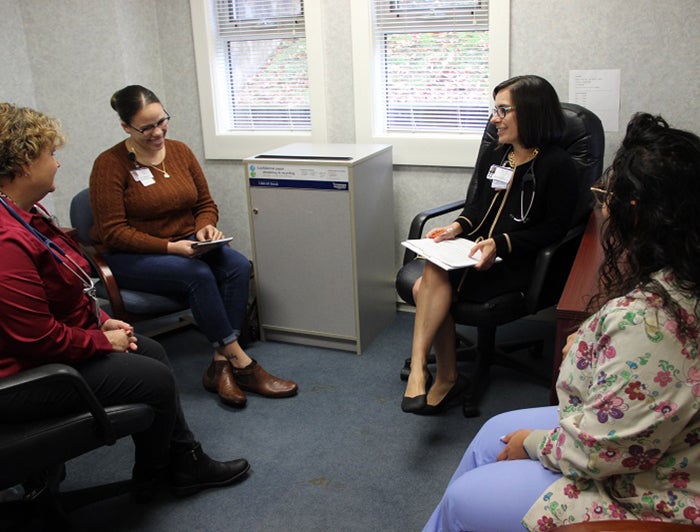
Becoming an Age-Friendly Health Care System
A member of Care New England, Kent Hospital opened an Adult Care for Elders unit to test the 4Ms Framework. Length of stay has decreased, and patient satisfaction has increased.
Blog
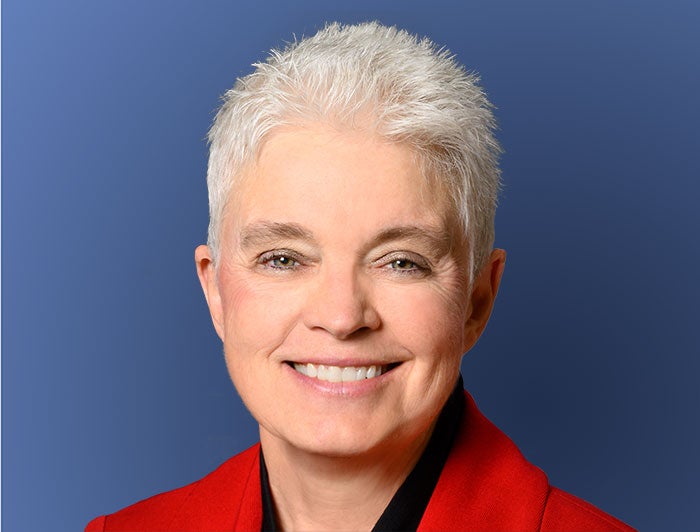
From the AHA Board Chair: Age-Friendly Care for the Future
By participating in an Age-Friendly Health Systems Action Community, you are preparing for the future, writes Melinda Estes, 2020 AHA board chair.
Case Study
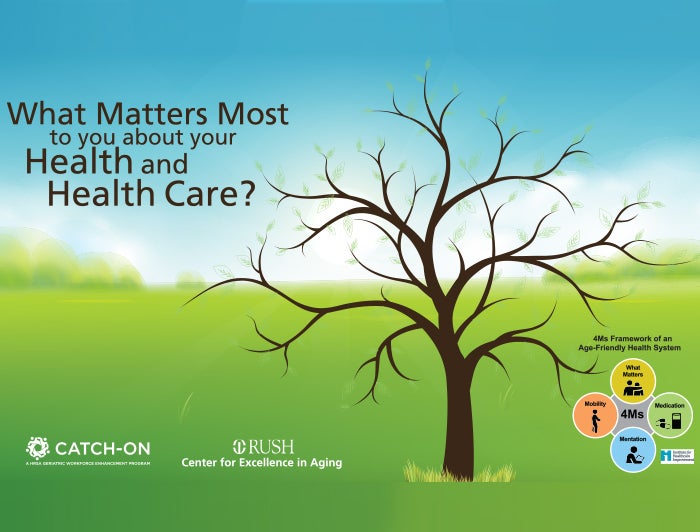
Building an Age-Friendly Health System and Community
Rush University Health System began implementing the 4Ms Framework to improve the lives of patients, families, caregivers and employees.
Issue brief

Creating Value with Age-Friendly Health Systems
This Value Initiative issue brief highlights the 4Ms as a low-tech, value-based strategy to improve patient outcomes and experience for older adults.
Blog

Success Story: Implementing the 4Ms at Christiana Care
Nurses and other key stakeholders at Christiana Care embraced the 4Ms Framework, which became part of strategic planning efforts.
Guide

Putting the 4Ms into Practice
Learn more about the 4Ms Framework and how to use it in practice to become an Age-Friendly Health System in the Guide to Using the 4Ms in the Care of Older Adults.
Blog
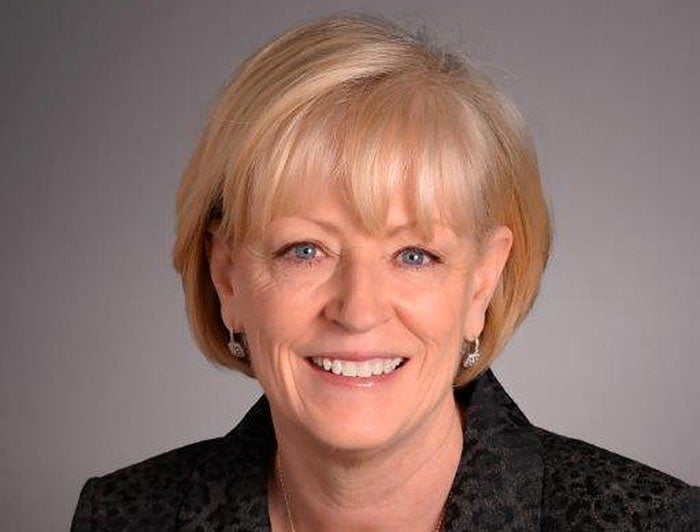
Making Care Better and Friendlier for Older Adults
Personal story about caring for aging parents shared by Marie Cleary-Fishman, vice president of clinical quality at the AHA Center for Health Innovation.
Multimedia
4Ms Framework for an Age-Friendly Health System
Rush Center for Excellence in Aging highlights using the 4Ms to create an Age-Friendly Health System.
What Is an Age-Friendly Health System?
Mary Tinetti, M.D., chief of geriatrics at Yale School of Medicine and Yale–New Haven Hospital, describes what it means to be an Age-Friendly Health System.
How the 4Ms Improve Care for Older Adults
This video from the John A. Hartford Foundation outlines how to provide the best care possible for older adults.
Caring for the Caregivers of Older Adults
Diane Mariani, program manager at Rush University Medical Center, discusses the health system’s Caring for Caregivers program, which offers resources and guidance to people who care for older adults while helping them better manage their own health and wellness.






